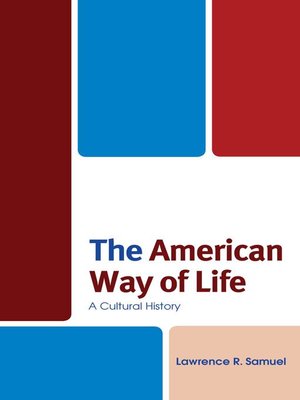The American Way of Life
ebook ∣ A Cultural History · The Fairleigh Dickinson University Press Series in American History and Culture
By Lawrence R. Samuel

Sign up to save your library
With an OverDrive account, you can save your favorite libraries for at-a-glance information about availability. Find out more about OverDrive accounts.
Find this title in Libby, the library reading app by OverDrive.



Search for a digital library with this title
Title found at these libraries:
| Library Name | Distance |
|---|---|
| Loading... |
Telling the full story of the American Way of Life (or more simply the American Way) in the United States over the course of the last century reveals key insights that add to our understanding of American culture. Lawrence R. Samuel argues that since the term was popularized in the 1930s, the American Way has served as the primary guiding mythology or national ethos of the United States.
More than that, however, this work shows that the American Way has represented many things to many people, making the mythology a useful device for anyone wishing to promote a particular agenda that serves his or her interests. A consumerist lifestyle supported by a system based in free enterprise has been the ideological backbone of the American Way, but the term has been attached to everything from farming to baseball to barbecue. There really is no single, identifiable American Way and never has been—it becomes clear after tracing its history—making it a kind of Zelig of belief systems. If our underlying philosophy or set of values is amorphous and nebulous, then so is our national identity and character, Samuel concludes, implying that the meaning of America is elastic and accommodating to many interpretations. This unique thesis sets off this work from other books and helps establish it as a seminal resource within the fields of American history and American studies.
More than that, however, this work shows that the American Way has represented many things to many people, making the mythology a useful device for anyone wishing to promote a particular agenda that serves his or her interests. A consumerist lifestyle supported by a system based in free enterprise has been the ideological backbone of the American Way, but the term has been attached to everything from farming to baseball to barbecue. There really is no single, identifiable American Way and never has been—it becomes clear after tracing its history—making it a kind of Zelig of belief systems. If our underlying philosophy or set of values is amorphous and nebulous, then so is our national identity and character, Samuel concludes, implying that the meaning of America is elastic and accommodating to many interpretations. This unique thesis sets off this work from other books and helps establish it as a seminal resource within the fields of American history and American studies.






